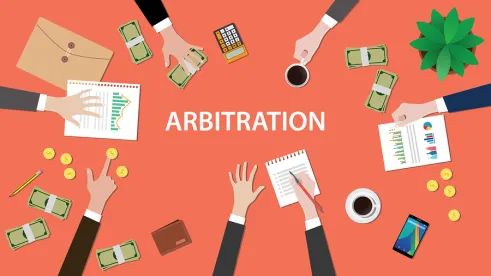In an important development for businesses engaged in cross-border transactions, the International Chamber of Commerce has amended its arbitration rules effective January 1, 2021. The amendments are designed to increase the efficiency, flexibility, and transparency of ICC arbitrations, while largely maintaining the core provisions that have made the ICC one of the most popular international arbitration institutions in the world. As a result, ICC arbitration may be an attractive option for parties who may have previously viewed ICC proceedings as too slow and expensive.
Although some of the amendments were designed to overcome challenges posed by COVID-19, they should continue to make ICC arbitration more flexible and efficient long after the pandemic has ended. For example, the rules now expressly empower the arbitral tribunal to conduct hearings remotely. As many arbitrators and practitioners have learned during the pandemic, virtual hearings tend to reduce costs and delay and can work well even where it is important for the tribunal to observe a key witness's demeanor. Hence many parties will likely continue conducting hearings remotely even after in-person hearings are again possible. Other amendments responsive to the pandemic similarly bring the ICC up to speed with modern technology. For example, parties can now submit their Requests for Arbitration and Answers by email instead of regular post.
Apart from such pandemic-related changes, multiple other amendments aim to ensure more efficient, flexible, and transparent proceedings in a range of case types. In complex arbitrations involving multiple parties or multiple contracts, for example, the rules now allow party joinder even after the appointment of the arbitral tribunal. They also provide for consolidation of cases involving different parties when all the claims in those arbitrations fall under the same arbitration agreements. The amended rules empower the tribunal to “take any measure necessary” in response to an arbitrator conflict of interest created by a party's mid-stream change of counsel—a not-uncommon “guerilla tactic” some lawyers have employed to delay the proceedings. On a similar note, the rules now require parties to disclose any person who has “an economic interest in the outcome of the arbitration,” so as to address possible conflicts due to a potential arbitrator's relationship with third-party funders.
As for smaller disputes, the most important amendment is the expanded scope of the ICC's Expedited Procedure. It now automatically applies to disputes where the amount in controversy is $3,000,000 or less, provided that the parties concluded their arbitration agreement on or after January 1, 2021, unless the parties have agreed to opt out. The Expedited Procedure, which in the ICC's words has enjoyed “great success” since its 2017 introduction, is a highly streamlined version of traditional international arbitration. Among other things, only a single arbitrator is appointed, notwithstanding anything in the parties' arbitration agreement to the contrary; the arbitrator must deliver her award within six months; and the arbitrator is expressly empowered to allow no discovery whatsoever or to decide the case on the documents alone (without a hearing). Unsurprisingly, cases conducted under the Expedited Procedure are thus generally much cheaper and faster than regular ICC proceedings. At the same time, however, the Expedited Procedure preserves many of the most attractive aspects of ICC arbitration: procedural flexibility, appointments from a high-quality pool of international arbitrators, and the ICC Court's scrutiny of the arbitral award to help ensure enforceability. Notably, an increasing percentage of parties are jointly opting in to the Expedited Procedure after their dispute has arisen, despite an amount in controversy exceeding the monetary threshold for the process to automatically apply.
The ICC's new rules contain a number of other amendments, mostly of technical interest to international arbitration practitioners. Practically speaking, the amendments touched on above are the changes that most parties and counsel will want to weigh when considering whether ICC arbitration is now a more appealing dispute-resolution option. All told, the 2021 amendments to the ICC's arbitration rules are likely to make ICC arbitration a quicker, cheaper way to resolve many international commercial disputes of all sizes and complexity.





 />i
/>i

